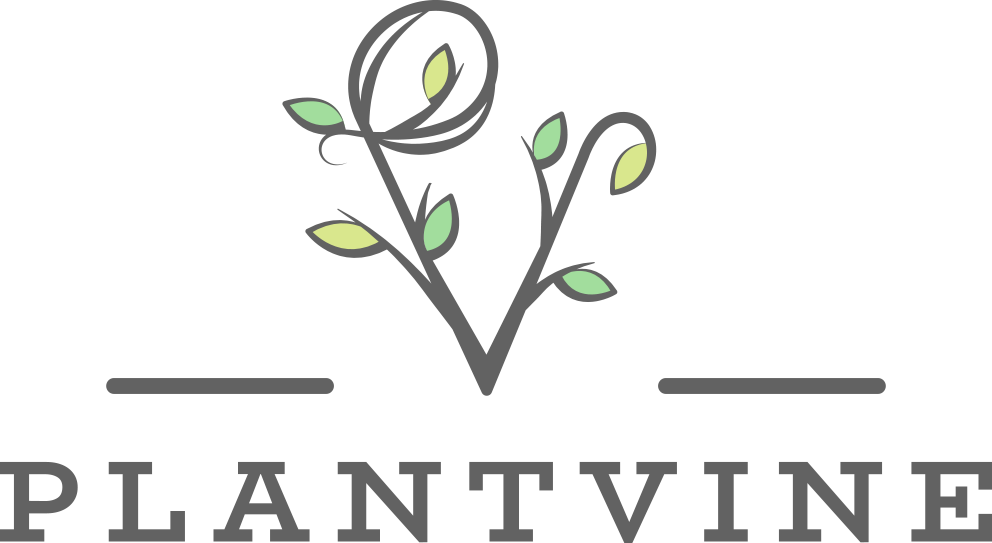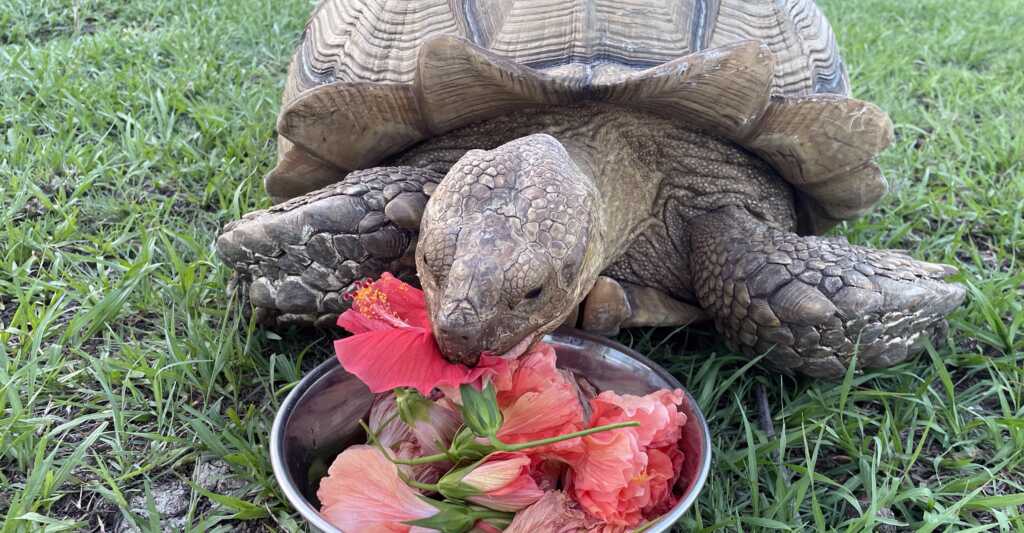
Mega tortoises like the Russian Redfoot and Sulcata are gaining popularity as house pets in America due to their unique combination of impressive size, relatively low maintenance needs, and captivating personalities. These tortoises offer a fascinating alternative to traditional pets, with their slow, deliberate movements and long lifespans creating a strong bond with their owners over many years. Their herbivorous diet and minimal grooming requirements make them appealing to those looking for a low-maintenance pet. Additionally, their docile nature and the ability to adapt to various living environments, including indoor and outdoor spaces, contribute to their growing appeal among pet enthusiasts seeking an exotic yet manageable companion.
Owning a pet tortoise is a rewarding experience, but it comes with a unique set of responsibilities, particularly regarding their diet. Tortoises are primarily herbivores, and what they consume can significantly impact their health and longevity. Therefore, understanding which plants are safe and which are potentially harmful is crucial for any tortoise owner. This comprehensive guide will explore common plants safe for pet tortoises and those you should avoid.
Safe Plants for Pet Tortoises
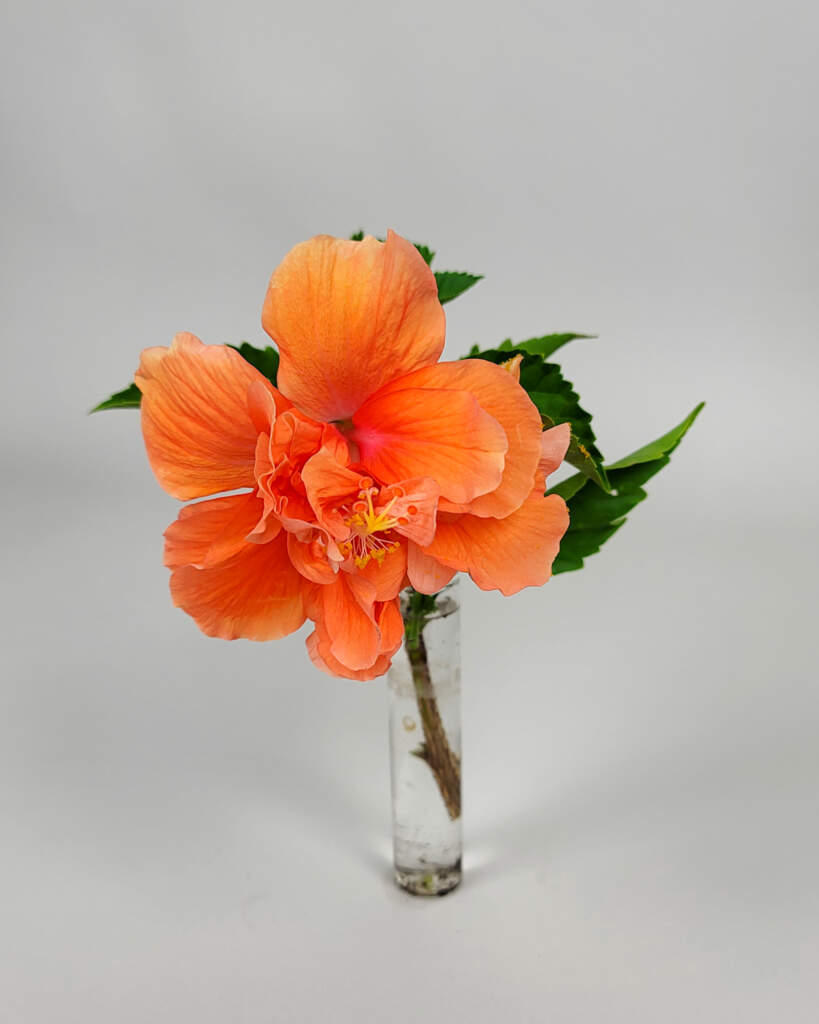
Tropical Hibiscus ‘Double Peach’
1. Hibiscus (Hibiscus rosa-sinensis)
Hibiscus is a beautiful flowering plant that is not only safe for tortoises but also highly nutritious. The flowers and leaves are edible and provide a good source of antioxidants, vitamins A and C, and minerals. Hibiscus plants can be grown indoors with adequate light, and their vibrant flowers add a touch of color to any home.
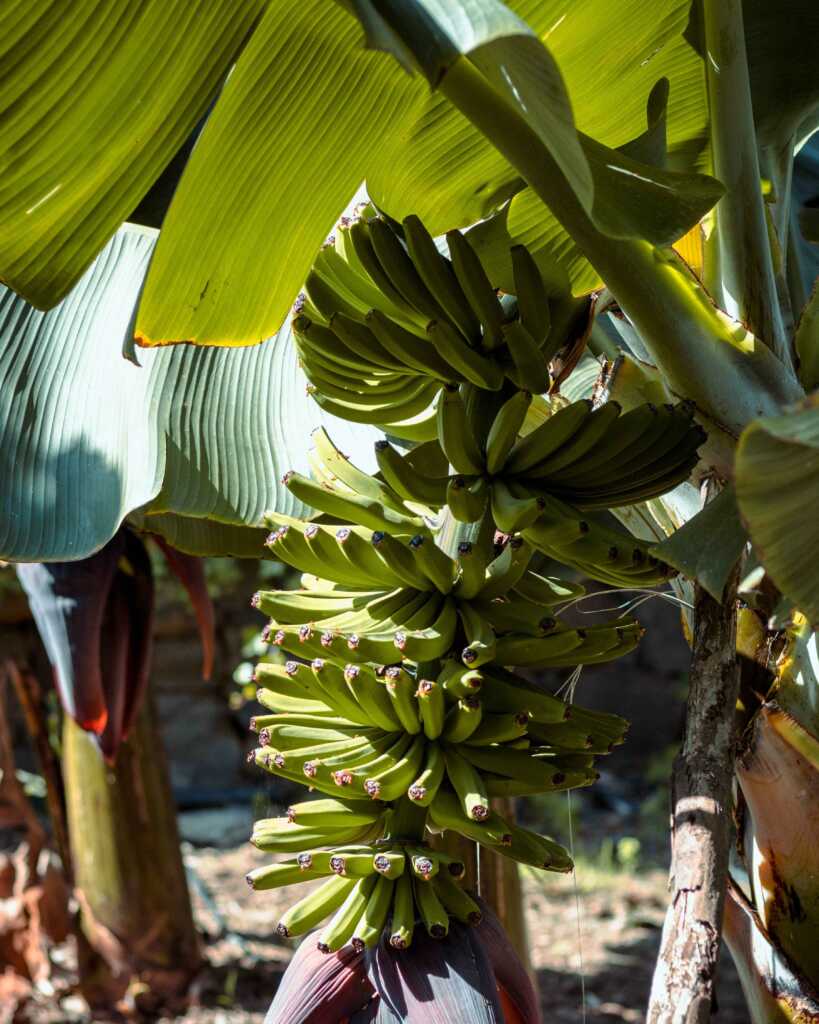
Cavendish Banana Tree
2. Banana Plants (Musa spp.)
Banana plants are another excellent addition to a tortoise-friendly household. While the fruit itself should be given sparingly due to its high sugar content, the leaves are perfectly safe and nutritious. They are rich in fiber, which aids in digestion. Growing a banana plant indoors requires a sunny spot and regular watering, but the lush, tropical foliage is a rewarding sight.
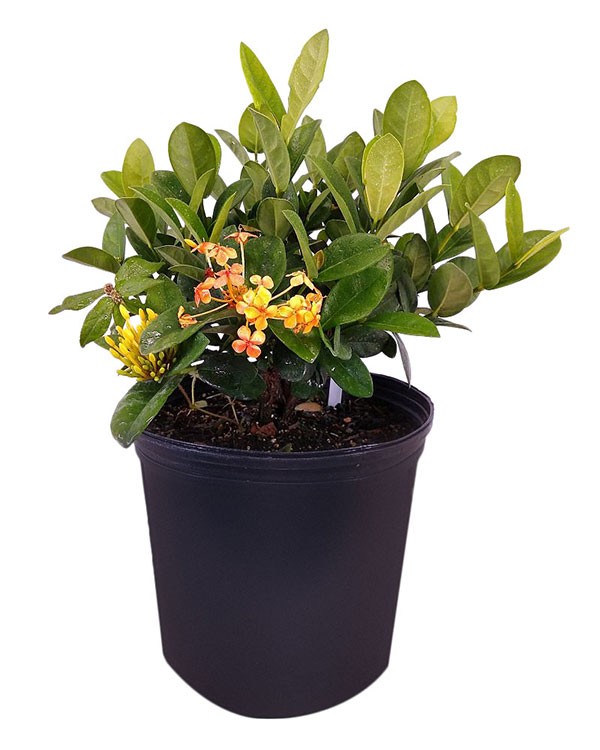
Ixora coccinea ‘Maui Yellow’, Flame of the Woods, Jungle Flame, Jungle Geranium
3. Jungle Geranium (Ixora coccinea)
Also known as Ixora, Jungle Geranium is a flowering plant that produces clusters of small, brightly colored flowers. The leaves and flowers are safe for tortoises to consume. This plant thrives in well-drained soil and bright, indirect light. Its compact size makes it an excellent choice for indoor gardening.
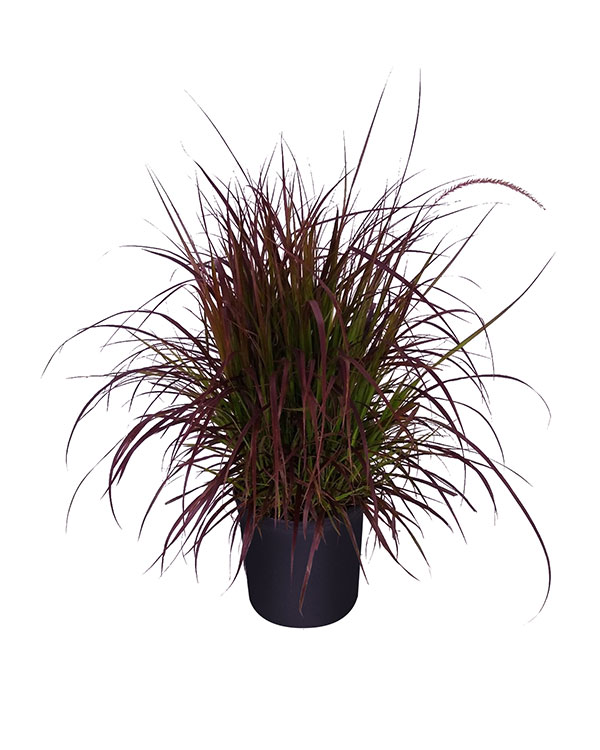
Purple Fountain Grass
4. Fountain Grass (Pennisetum setaceum)
Fountain Grass is an ornamental grass that is safe for tortoises and provides a good source of fiber. Its feathery plumes and arching stems add texture and movement to indoor plant arrangements. Fountain Grass prefers bright light and regular watering, making it relatively easy to maintain indoors.
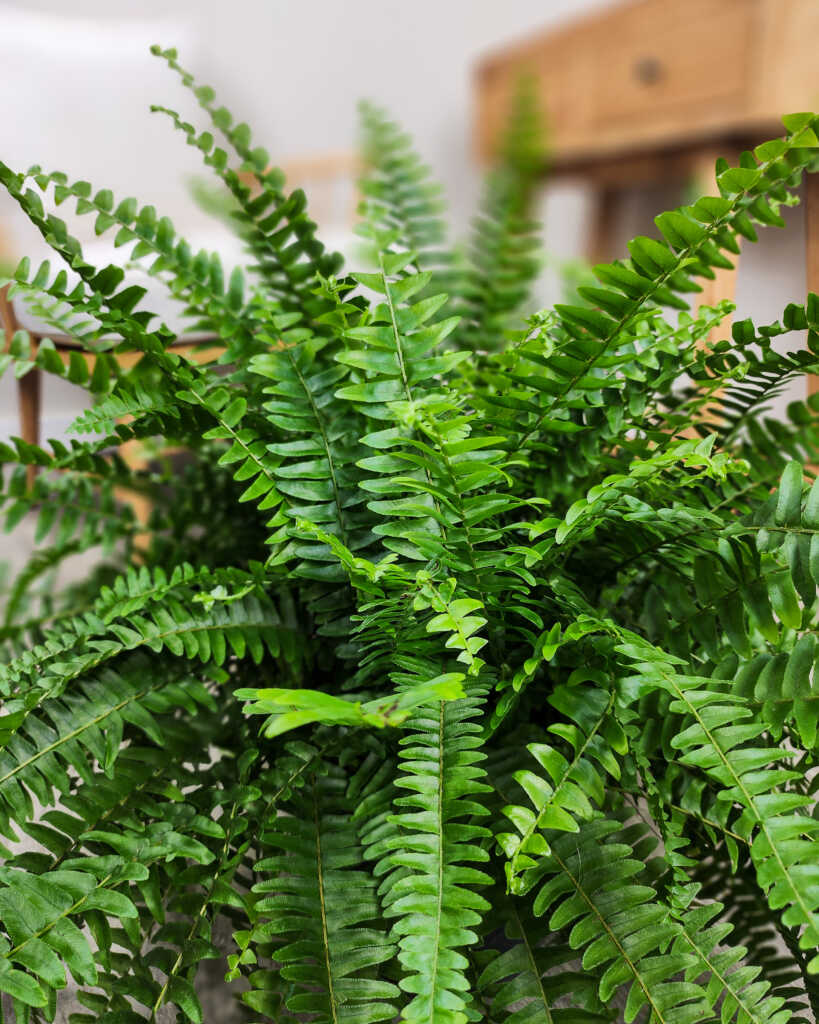
Boston Fern
5. Boston Fern (Nephrolepis exaltata)
Boston Ferns are popular houseplants known for their lush, feathery fronds. They are safe for tortoises and provide a source of fiber and moisture. Boston Ferns thrive in high humidity and indirect light, making them suitable for bathrooms or kitchens. Regular misting helps maintain the necessary humidity levels.
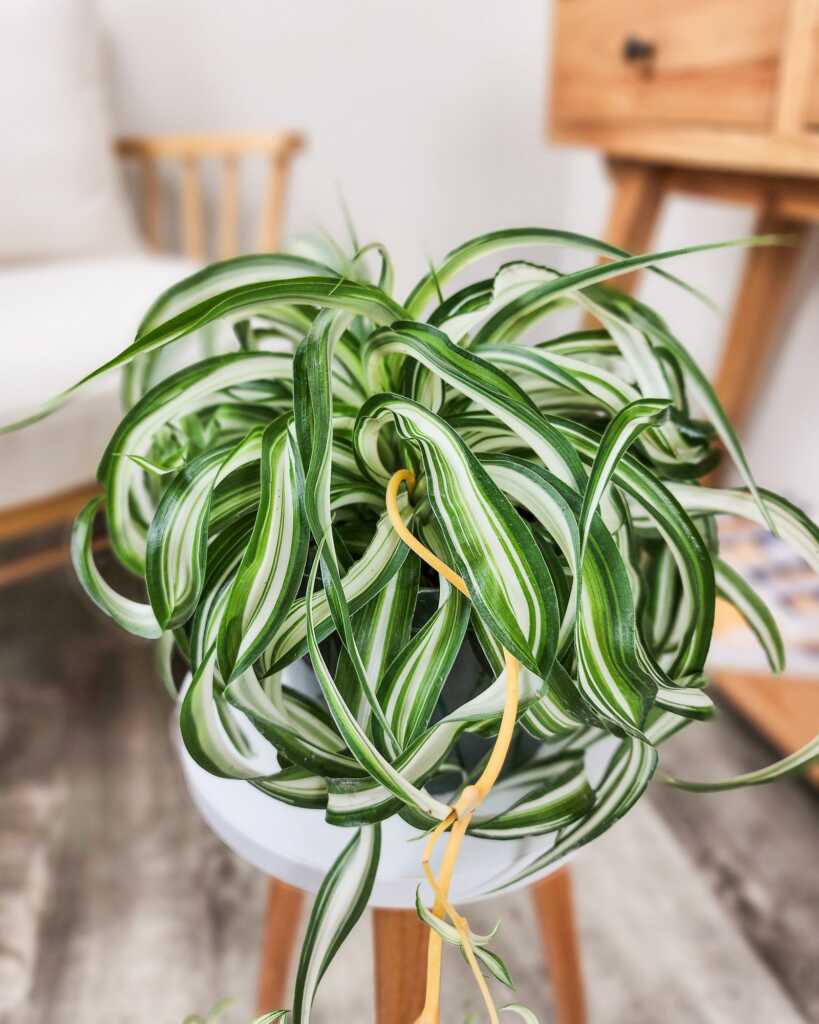
Bonnie Spider Plant
6. Spider Plant (Chlorophytum comosum)
Spider Plants are resilient and easy-to-grow houseplants that are safe for tortoises. They have long, arching leaves and produce small white flowers and baby plantlets. Spider Plants prefer bright, indirect light and well-drained soil. They also help purify the air, making them a beneficial addition to any home.
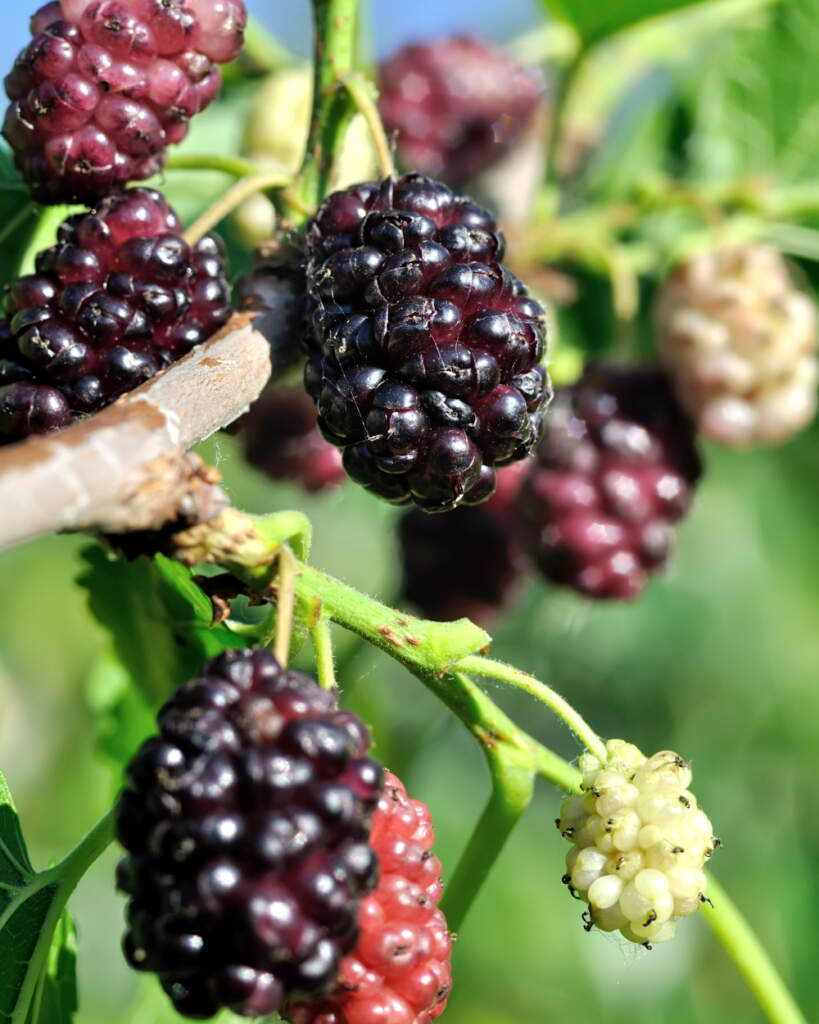
Everbearing Mulberry
7. Mulberry (Morus spp.)
Mulberry leaves are highly nutritious and safe for tortoises. They are rich in calcium, iron, and fiber, contributing to a healthy diet. While growing a full-sized mulberry tree indoors may not be practical, young mulberry plants or dwarf varieties can be maintained in large pots with sufficient light and water.
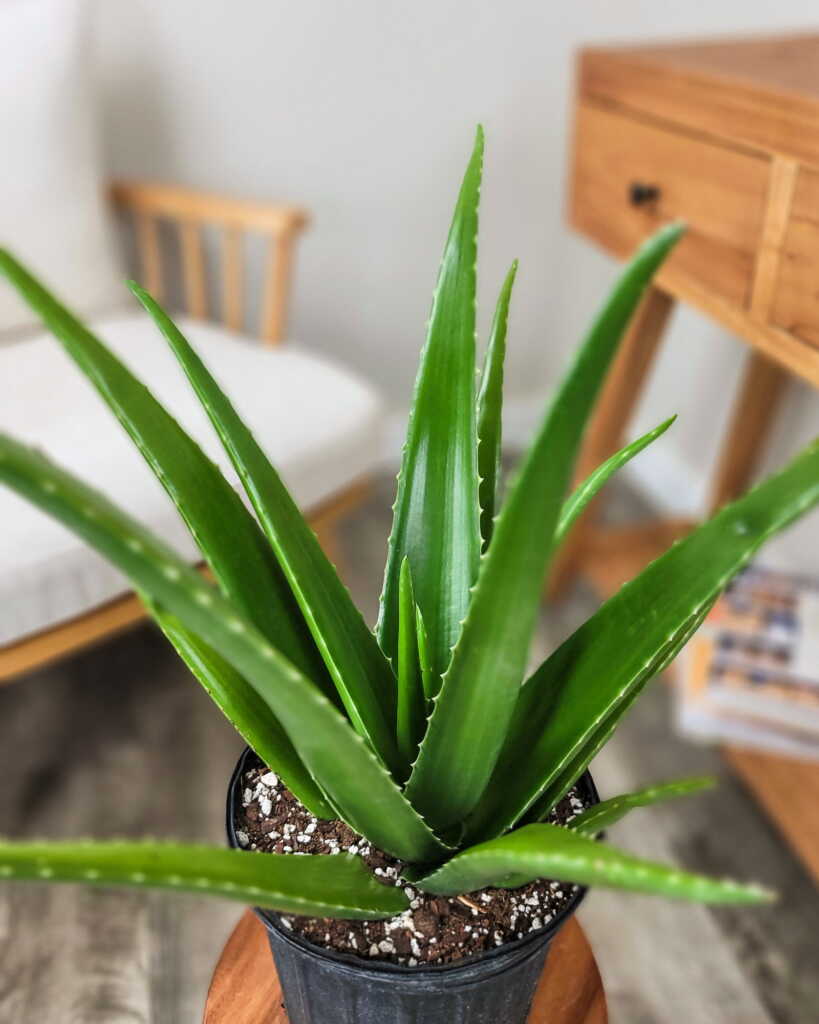
Aloe vera
8. Aloe Vera (Aloe barbadensis miller)
Aloe Vera is a succulent plant known for its medicinal properties. It is safe for tortoises to consume in moderation and provides hydration due to its high water content. Aloe Vera thrives in bright light and requires minimal watering, making it an easy and beneficial plant to grow indoors.
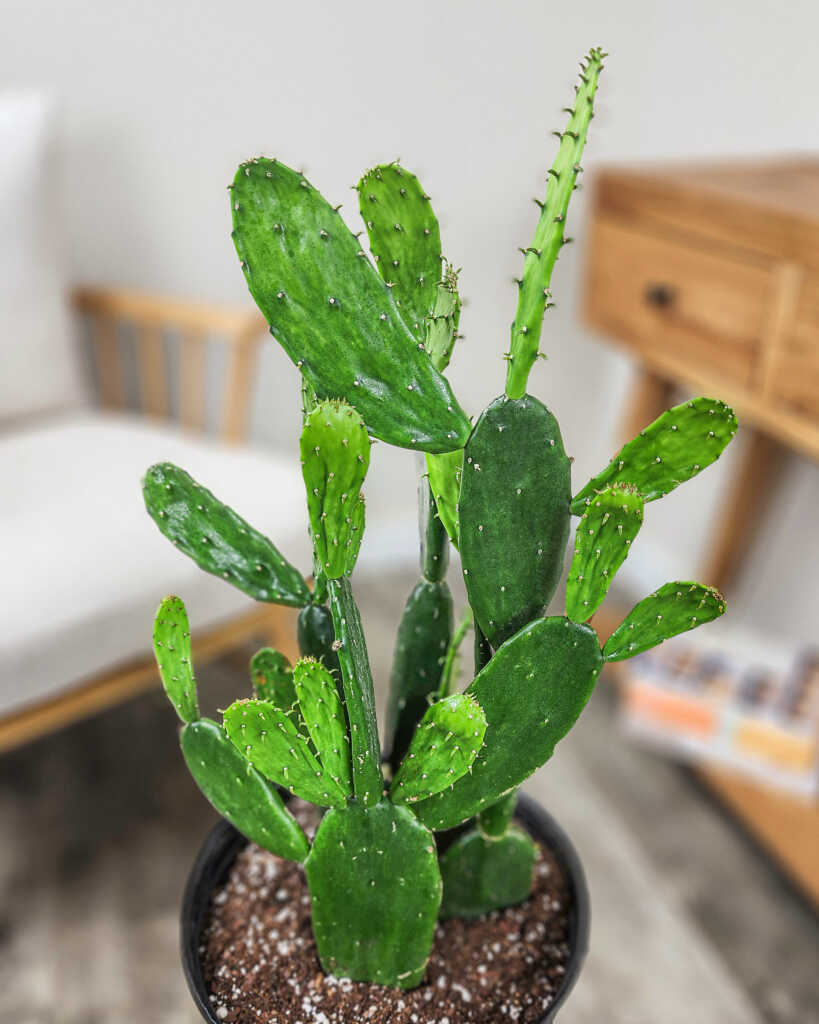
Prickly Pear Cactus
9. Opuntia (Opuntia spp.)
Commonly known as prickly pear cactus, Opuntia is a fantastic plant for tortoises. The pads and fruits are edible and rich in fiber, vitamins, and minerals. Before feeding Opuntia to your tortoise, ensure the spines are removed. This cactus prefers bright light and well-drained soil, requiring minimal water.
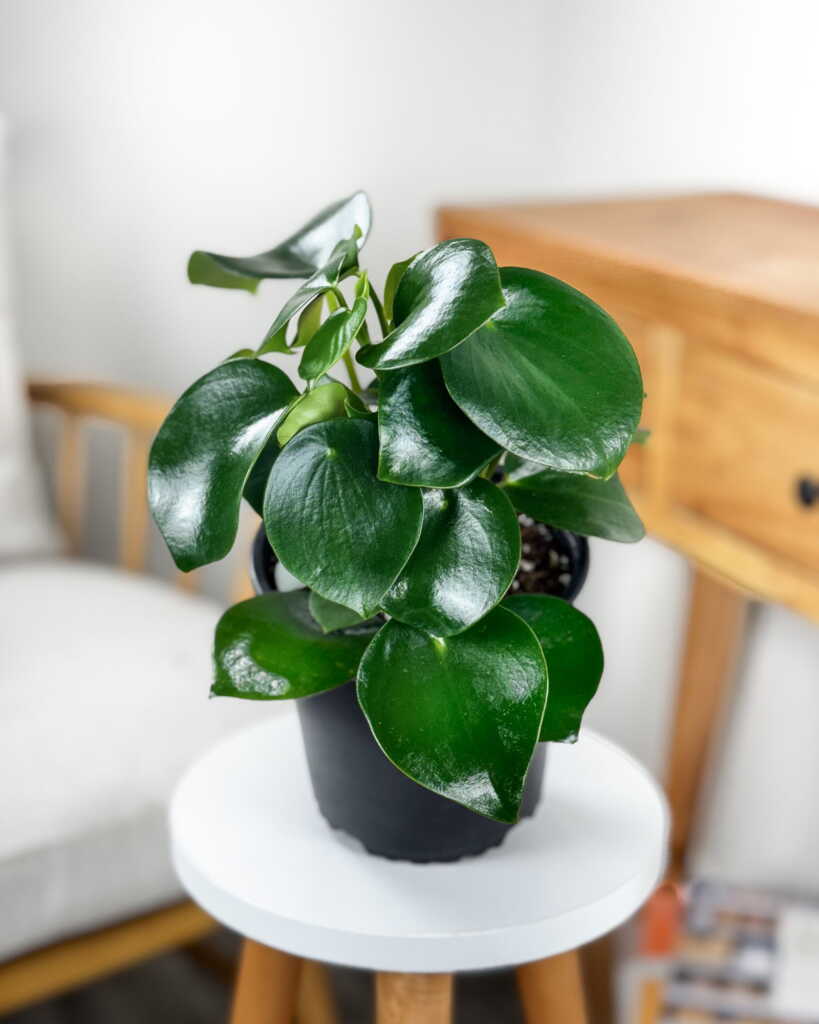
Peperomia ‘Raindrop’
10. Peperomia (Peperomia spp.)
Peperomia is a diverse genus of small, ornamental plants that are safe for tortoises. They have attractive foliage and thrive in low to moderate light, making them ideal for indoor environments. Peperomia plants prefer well-drained soil and should be watered sparingly to avoid root rot.
Unsafe Plants for Pet Tortoises
These plants contain various toxins that can cause severe health issues in tortoises, including gastrointestinal upset, kidney failure, and even death. Always ensure the plants within reach of your tortoise are safe and non-toxic.
- Dieffenbachia (Dumb Cane)
- Philodendron
- Pothos (Devil’s Ivy)
- Alocasia(Elephant Ear)
- Ficus (Rubber Plant, Fiddle Leaf Fig)
- Peace Lily
- Snake Plant (Sansevieria)
- Oleander
- Jade Plant (Crassula)
- Yew (Taxus)
- Sago Palm
- ZZ Plant (Zamioculcas zamiifolia)
Benefits of Providing Safe Houseplants to Tortoises
Including safe houseplants in your tortoise’s diet offers several benefits:
- Nutritional Variety: Different plants provide various nutrients, ensuring a balanced diet for your tortoise.
- Enrichment: Foraging on fresh plants stimulates natural behaviors and keeps tortoises mentally engaged.
- Hydration: Many of these plants have high water content, helping to keep tortoises hydrated.
- Digestive Health: High-fiber plants aid in digestion and prevent common issues like constipation.
Conclusion
Ensuring your pet tortoise has access to safe and nutritious plants is vital for their health and well-being. By familiarizing yourself with the common safe and unsafe plants, you can create a diet that supports their growth and longevity. Remember, variety and moderation are key, and always prioritize fresh, clean plants for your beloved tortoise. With the right care and attention, your tortoise can thrive and enjoy a long, healthy life.
To learn more about which plants your tortoise can and can’t eat, click here.
